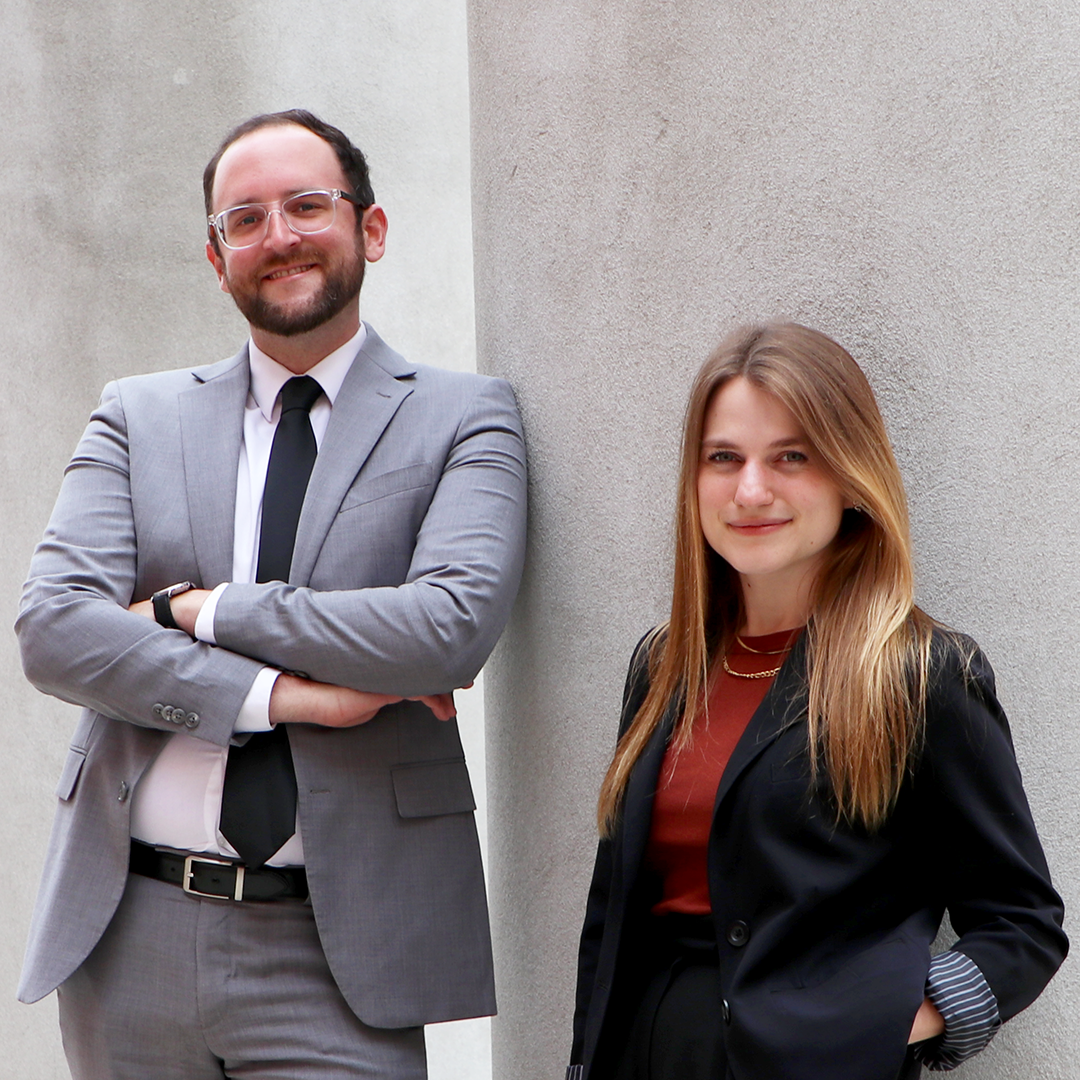The Legal Name & Gender Marker Change Project Celebrates First Year at LMU Loyola Law School

The Legal Name & Gender Marker Change Project at LMU Loyola Law School, co-founded by 3Ls Emma Smizer and Alex Rafuse, aims to fill the gap in access to a vital legal service that exists for the transgender and non-binary communities of greater Los Angeles. The project, having launched in the fall of 2021, has so far assisted with the petition of over 45 name and gender change court filings and trained more than 45 LLS students who have completed a combined total over 390 service hours. The project also recently announced its incoming Executive Committee for the 2022-2023 academic school year, comprised of rising 3L students Francisco Calderon and Vi Ray Mazumder, and rising 2L students Elizabeth Morehouse, Sophia Suarez and Evan Morehouse.
These volunteer students provide personalized assistance to people who aim to change their legal name and gender with the support of an inclusive and affirming advocate who can navigate the complex process of an unlimited civil case filing. The project has benefitted from guidance of LLS adjunct faculty member and LGBTQ Center Long Beach Director of Legal Services Mieko Failey ’13, who through an LLS internship following her own first year of law school, helped to provide legal services to LGBTQ survivors of violence.
“The volume of petition requests has increased in the past several years for a number of reasons, including some changes in the law that have made it easier for transgender, gender non-conforming and non-binary community members to be able to access name and gender change petitions,” said Failey. “As a result of the eliminations of what used to be extremely burdensome requirements like the publication requirement and the requirement of having a physician’s declaration, as well as the addition of a non-binary gender marker, we have seen an influx of requests.” The surge in demand for these services has created an opportunity for LLS students to bridge the gap in access to this critically needed service.
“As LGBTQ issues are brought forth to the center and become a larger part of the conversation we're having around gender identity and/or sexual orientation, I think that for every attorney and every law student, this is really relevant work,” said Emma Smizer while reflecting on her experience coordinating the project’s early days. “You're learning how to speak to someone compassionately about what they're going through and how to provide them service.”
Alex Rafuse, who has a background of supporting asylum work for LGBTQ community members in the Philadelphia area, has applied his passion for public interest law to forging partnerships with both the Los Angeles LGBT Center and the LGBTQ Center Long Beach where student volunteers interface with clients and attorneys on a monthly basis.
“It's really exciting to be able to help through this process, which for so many trans and non-binary people, is one of the first steps of affirming their identity outwardly to the world,” said Rafuse. “Being able to take part in these early stages and being able to help them see the world as an accepting place is a rewarding thing to be able to contribute to.”
Prior to working with any clients, volunteers are trained by center staff to ensure that they are using inclusive and affirming language when interacting with petitioners. Students explain to petitioners how to complete forms, where and how to file them and offer a next steps guide to follow after a court order is granted.
“What’s most exciting is that at the very end of each day, our clients leave with a fully completed petition and everything ready for them to move forward to have their documents changed,” said Rafuse.
“For some folks it's just an incredibly affirming process to have an institution recognize their new legal name and gender,” said Owen Monkemeier, a Los Angeles LGBT Center staff attorney, who underscored the weight of this process for the trans community. “It can lessen gender dysphoria, and we hear some folks talk about how it relieves stress to look at their official identification and see the correct gender marker and/or name.”
Monkemeier shared how changes in California law have accommodated non-binary and gender non-conforming clients. “In California it's relatively new that you can get a court order recognizing your change of gender to non-binary, a driver's license and a birth certificate that's non-binary, and now we're seeing that being implemented on U.S. passports as well,” they added. “For other clients it's truly a very serious matter of safety. If the client doesn’t have their gender marker updated to reflect their affirming gender identity, they may be at serious risk of being outed as trans.”
The students involved in the project are challenged to develop their professional advocacy skills in a way that is hard to replicate inside of a classroom setting. In addition, many are demystifying the very form-based practice of law for certain areas, that especially in this state, are driven by the California court forms.
“Some of our clients are often marginalized or disenfranchised by society and may have gone through experiences where they did not feel empowered,” added Smizer. “To be able to make a difference just by giving a couple hours of my time has been really, really meaningful. There's very much a service aspect of being an attorney. And I think the rewarding aspects of the job get lost when we're talking about client services.”
Learning more about getting involved with or supporting the Legal Name & Gender Marker Change Project at LMU Loyola Law School by reaching out to lngmc.project@lls.edu.